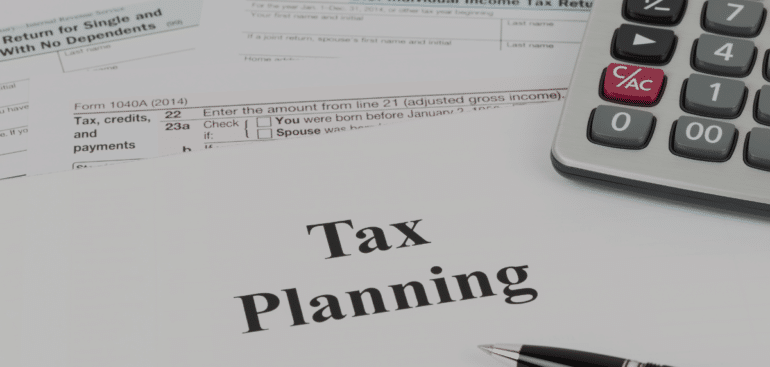When it comes to managing your finances as an entrepreneur or small business owner, effective tax planning is your secret weapon. It’s not just about saving money; it’s about optimizing your financial strategy for growth and success. In this guide, we’ll share valuable tax planning tips that will not only build your trust in the financial process but also ignite your excitement about what’s possible for your business.
Why Trust Us?
At Byteio Accounting, we understand that taxes can be a daunting aspect of business ownership. That’s why our team of experts, with years of experience in taxation and finance, has created this guide. Our goal is to provide you with reliable, authoritative, and user-friendly information. You can trust us to help you navigate the complex world of tax planning.
The Power of Tax Planning
Proper tax planning isn’t just about avoiding the taxman; it’s about harnessing the power of taxation to benefit your business. Here are some compelling reasons to get excited about tax planning:
1. Maximize Savings
Effective tax planning can significantly reduce your tax liability, leaving you with more money to invest in your business or enjoy personally.
2. Boost Cash Flow
By strategically timing income and expenses, you can enhance your business’s cash flow, ensuring you have the resources you need when you need them.
3. Compliance and Peace of Mind
Compliance with tax laws is crucial for avoiding penalties and legal issues. Knowing you’re on the right side of the law provides peace of mind and helps build trust with stakeholders.
4. Strategic Growth
Tax planning can be a powerful tool for achieving your business growth goals. You can allocate your resources more effectively and make informed financial decisions.
Tax Planning Basics
Before we delve into the tips, let’s cover some essential tax planning basics:
1. Business Structure
The structure of your business, whether it’s a sole proprietorship, partnership, LLC, or corporation, impacts your tax obligations. Each structure has its own tax advantages and disadvantages, so choose wisely.
2. Record Keeping
Accurate record-keeping is the foundation of effective tax planning. It’s essential to maintain detailed financial records, including income, expenses, and receipts.
3. Tax Deductions
Understanding tax deductions is key. These are expenses that can be deducted from your taxable income, reducing the amount you owe in taxes. Common deductions include office expenses, travel, and employee wages.
Tax Planning Tips for Entrepreneurs and Small Businesses
Now, let’s dive into the practical tips that can help you navigate the world of tax planning and make the most of your financial situation:
1. Start Early
Tax planning isn’t something you should only think about during tax season. It’s a year-round process. By staying proactive, you can identify opportunities and challenges in advance.
2. Work with a Professional
Consider hiring a qualified tax professional or accountant. Their expertise can help you navigate complex tax codes, take advantage of deductions, and ensure compliance.
3. Choose the Right Accounting Method
Your choice of accounting method (cash or accrual) affects when you recognize income and expenses. Select the method that aligns with your business’s needs and goals.
4. Take Advantage of Tax Credits
Tax credits are even more valuable than deductions, as they directly reduce your tax liability. Research available tax credits for your industry and make sure you’re taking full advantage.
5. Keep Personal and Business Finances Separate
Maintain separate bank accounts and financial records for your business. This separation simplifies record-keeping and helps avoid complications with the IRS.
6. Track Expenses Diligently
Categorize and track all business expenses accurately. This includes keeping receipts and invoices, so you have the necessary documentation to support your deductions.
7. Understand Depreciation
For significant business purchases like equipment, vehicles, or property, familiarize yourself with depreciation rules. This allows you to spread the cost of these assets over their useful life, providing tax benefits.
8. Plan for Retirement
Contributing to a retirement plan not only secures your financial future but can also offer tax advantages. Explore options like a Simplified Employee Pension (SEP) or a 401(k) for small businesses.
9. Explore Tax-Efficient Business Structures
Consider the advantages of structuring your business as an LLC or S corporation. These options can offer potential tax benefits and protect your personal assets.
10. Stay Informed
Tax laws and regulations change, so it’s vital to stay informed about the latest updates. This knowledge will enable you to adapt your tax planning strategies as needed.
Frequently Asked Questions
Q1: Can I handle tax planning on my own?
A1: While it’s possible to handle basic tax planning, working with a tax professional is highly recommended for the best results. They can help you navigate complex tax codes and maximize your savings.
Q2: What are common tax credits for small businesses?
A2: Common tax credits for small businesses may include the Research and Development Tax Credit, Small Business Health Care Tax Credit, and Work Opportunity Tax Credit. Explore which credits apply to your business.
Q3: How can I reduce my tax liability as a sole proprietor?
A3: Deducting business expenses, maximizing retirement contributions, and utilizing tax credits are effective ways for sole proprietors to reduce their tax liability.
Q4: What are the potential tax benefits of an LLC or S corporation?
A4: Both LLCs and S corporations offer pass-through taxation, which can reduce self-employment taxes. Additionally, they provide liability protection for your personal assets.
Conclusion
Tax planning is not just a financial obligation; it’s a strategic advantage for entrepreneurs and small business owners. By implementing these tax planning tips, you can maximize your savings, enhance cash flow, and position your business for growth. Trust in the process, work with professionals and stay informed to make the most of your tax planning efforts. Your financial future and business success depend on it.

